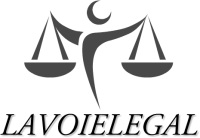Posted published by Chantal Lavoie on 6 June 2016
Three sets of much awaited judgments are expected this month from the Court of Justice of the European Union.
On 9 June 2016 - 3 judgments of the Court of Justice in relation to the Spanish bitumen cartel
CEPSA, PROAS, Repsol Lubricantes, are separately appealing the judgments of the General Court which had upheld the Commission's 2007 decision in the Spanish bitumen cartel. Judicial proceedings in these cases have been pending since 2007, with the Commission investigation having started in 2002. In the CEPSA and PROAS appeals, the Court of Justice will deal mainly with arguments relating to the calculation of the fine and the arguably excessive duration of the proceedings. In the Repsol appeal, the Court of Justice will consider in particular whether Repsol should have benefitted from a greater reduction in fine under the Leniency Notice. Focus will be placed on the interpretation of the requirements under the 2002 Leniency Notice to qualify for a reduction in fine.
On 16 June 2016 - 2 judgments of the Court of Justice in relation to the calcium carbide decision
In their appeal, Degussa and AlzChem are arguing that the General Court's judgment upholding the Commission's decision should be annulled in so far as it applies to them. The main ground of appeal revolves around the issue of parental liability for the acts of a subsidiary. The Court of Justice is expected to clarify the circumstances whereby parental liability resulting from a presumption of exercise of decisive influence (where the parent holds all, or almost all, of the shares in the subsidiary) can be reversed. In this instance, Degussa and AlzChem argue that their 100% subsidiary, SKW, unilaterally participated in the calcium carbide cartel against their specific instructions, thereby reversing the presumption that they exercised decisive influence over SKW. In its opinion, the Advocate General considers that the appellants failed to reverse the presumption of parental liability and proposes to reject the appeal. If followed by the Court of Justice, the judgment will confirm the very high burden of proof needed to reverse this presumption.
SKW has also lodged a separate appeal against the General Court's judgment upholding the Commission's calcium carbide decision. The Court of Justice's judgment will focus in particular on whether the Commission infringed SKW's right to a fair hearing during the course of its investigation.
On 28 June 2016 - 2 judgments of the General Court in relation to the Telefonica/Portugal Telecom decision (finding that a non-compete clause infringes Article 101 TFEU)
In these much-awaited judgments, the General Court will decide whether to uphold the Commission's decision finding that a non-compete clause in a share purchse agreement (by which Telefonica acquired a block of shares from Portugal Telecom in Brasilcel) infringed Article 101 TFEU. The appellants argue that the clause should not have been interpreted as a non-compete agreement separately from the transaction at issue. The General Court is expected to decide on whether the Commission was right to classify the non-compete clause as a restriction by object and if it failed to assess whether the clause was capable of restricting competition.
